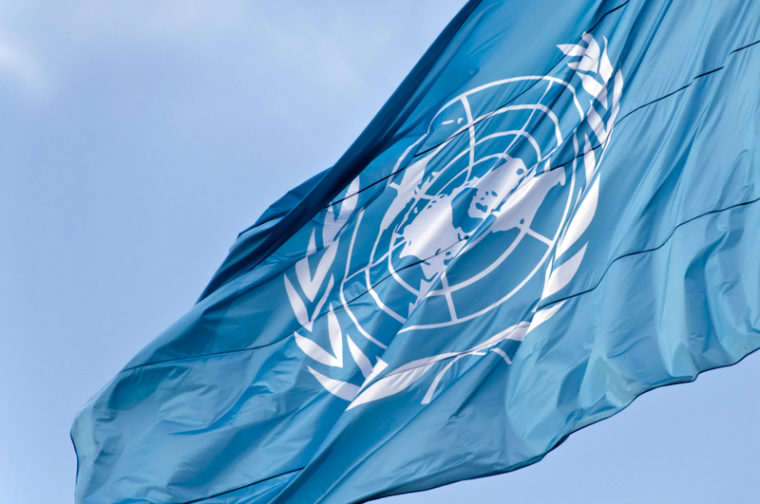
A United Nations Security Council resolution calling for “humanitarian pauses” to deliver aid to people in Gaza was blocked by a United States veto because it refused to mention Israel’s right to self-defense. It also ignored Hamas’ use of Gaza’s civilian population as human shields while perpetrating terrorist acts.
The rejection on Wednesday of humanitarian pauses is significant because it pushes the ceasefire sought by UN chief Antonio Guterres far away. That means the 2.4 million people trapped inside Gaza are unlikely to get broad enough help soon. They are besieged in an enclave 41 km long and 12 km wide with almost no access to safe water, food, medicines and electricity.
Guterres is insisting on a humanitarian ceasefire to ease “epic human suffering” and “provide sufficient time and space” to realize two essential appeals. He has appealed to Hamas to immediately free all Israeli, American and other hostages and for permission to urgently supply humanitarian access to food, water and medical aid through UN and other agencies.
“The region is on the precipice,” he warned referring to the dire needs of Gaza’s civilians. The necessary supplies are already loaded on to trucks blocked for four days just 30km from the Rafah crossing on the Egypt-Gaza border.
President Joe Biden successfully negotiated a deal with Israel’s Benyamin Netanyahu during their summit in Tel Aviv on Wednesday to allow trucks to travel to Gaza but the details remain to be worked out. The main problems concern how the supplies would be distributed absent a long enough pause in bombing, usable roads and guarantees that Hamas will not benefit.
About 1.3 million people have been displaced from their homes in Gaza. The World Health Organization (WHO) reported that only eight out of 22 primary healthcare centers run by the UN in Gaza are partially functioning and four out of 35 hospitals are too severely damaged to operate.
UN Middle East envoy Tor Wennesland emphasized the need for an inquiry into the strike against a Gaza hospital on Tuesday that killed hundreds, including patients, staff and displaced people seeking shelter.
“The circumstances of this catastrophe and responsibility remains and still needs to be clarified. And we will need a fact-based, full investigation and broad investigation,” he told the Security Council.
Hamas, which governs Gaza, has blamed the strike on Israeli warplanes. But Biden and Netanyahu have confirmed after investigation that a rocket fired towards Israel by a Gaza terror group malfunctioned and fell near the hospital run by the Anglican Christian church.
“I fear that we are at the brink of a deep and dangerous abyss that could change the trajectory of the Israeli-Palestinian conflict, if not of the Middle East as a whole,” Wennesland warned.
The Hamas terrorist group’s heinous attacks on Israel on 7 October, barbaric murders and kidnapping of hostages visited a devastating Israeli bombing campaign on Gaza that could expand into a ground war to root out and destroy Hamas once and for all.
Biden gave repeated assurances of support to Netanyahu and Israel’s people but also advised caution. “You can’t look at what has happened here … and not scream out for justice. While you feel that rage, don’t be consumed by it,” he counselled.
Biden’s historic appearance in Israel, less than two weeks after Hamas’ attacks killed 1,400 Israelis, demonstrated solidarity with America’s closest ally in the Middle East. His dispatch of two aircraft carrier groups and 2,000 marines also signaled his determination to deter a broader regional conflagration, with Iran and its Lebanese proxy Hezbollah joining the fight.
Arab outrage at the hospital deaths brought an unprecedented snub to Biden by Jordan and Egypt, America’s closest Arab friends in the region who also made formal peace with Israel decades ago. Jordan cancelled a Biden summit in Aman with King Abdullah bin Al-Hussein, Egyptian President Abdel Fatah El-Sisi and Mahmoud Abbas, who governs the West Bank.
This depth of rift with a US President bodes ill for whatever else Biden might want to do in cooperation with those leaders, especially after Israel destroys Hamas and needs to set up a new system of governance over Palestinians in Gaza.
The resolution that America vetoed was presented by Brazil, the current Security Council president, and approved by 12 of the Council’s 15 members. Russia and Britain abstained and the US voted against.
















